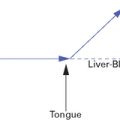 DEFECATION
DEFECATION
DIARRHOEA OR LOOSE STOOLS
Cold-Dampness in the Intestines
Loose stools with mucus and without smell, abdominal pain, abdominal fullness, undigested food in the stools, a feeling of cold, cold limbs, a feeling of heaviness, sticky white tongue coating, Slippery-Slow pulse.
DIARRHOEA WITH VOMITING
CONSTIPATION
Heat in Bright Yang (organ syndrome)
This corresponds either to the organ pattern of Heat in Bright Yang within the identification of patterns according to the Six Stages or to the pattern of Dry-Heat in the Intestines within the identification of patterns according to the Four Levels.
ALTERNATION OF CONSTIPATION AND LOOSE STOOLS
Stagnant Liver-Qi invading the Spleen
Alternation of periods of constipation and loose stools, small and bitty stools, straining on defecation during the periods of constipation, abdominal distension, abdominal pain that is not relieved by the bowel movement, hypochondrial or epigastric distension, irritability, moodiness, a feeling of a lump in the throat, premenstrual tension, tongue that may have Red sides (if Liver-Qi stagnation predominates) or Pale sides (if Spleen-Qi deficiency predominates), pulse that is Wiry on the left and Weak on the right.











